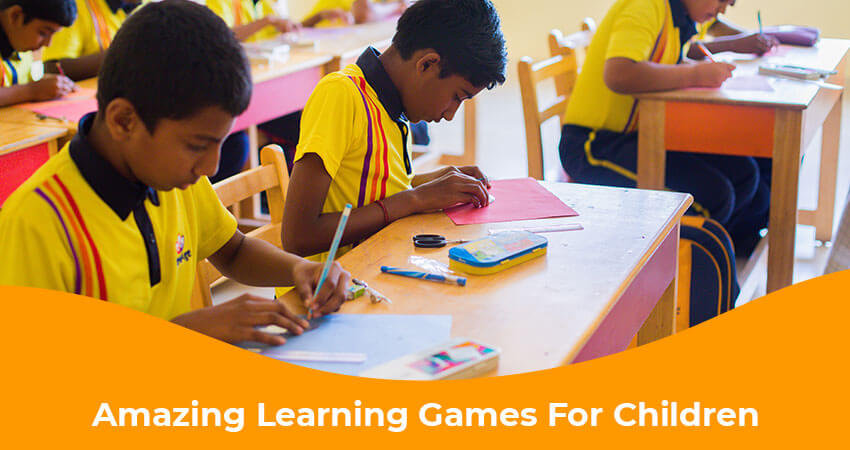

Like us, our students come to class carrying baggage from their day. While their class time with you is just one component of their lives, it’s very likely an important one for them professionally and personally. While it’s clear that children and beginners shine brighter when playing, it’s also true that adults and advanced learners enjoy competition and lighter moments in class. This is not to say that you should convert your class into a permanent playpen, rather, that the addition of moments of play give contrast in class and allows students of all learning types to thrive.
Always classic, these games are super versatile, let students practice specific vocabulary and expressions, and have the added bonus of encouraging a gleeful sort of atmosphere.
Create a stack of words, phrases, concepts, or historical figures that your class has recently studied and try to mix levels amongst teams.
You might like to experiment with playing as a whole class (where half competes against the other half) or in smaller groups with time limits.
This is a great way to get students speaking and practice your unit’s vocabulary.
In Taboo, one student must communicate a concept or word to their partner without using a specific list of related words.
For example, they must make their partner say “forest”, yet they are not allowed to use the words “tree,” “woods,” “Sherwood,” or “Black”.
Once their partner says the word, the students switch roles.
Put 20 objects on a table and give students a minute to memorize them.
Cover the objects with a cloth and ask the students to write down as many as they can remember.
You might choose to use objects related to your current module of study or that are connected in some other way.
This classic game is often forgotten and can easily be adapted to suit your class’s needs.
Besides classic bingo, you might create play boards where students cross off pictures, antonyms, synonyms, or T1 words.
Tongue twisters are great for lightening the mood, as an ice-breaker, or way to begin each class.
Search for more difficult phrases for advanced classes – you’ll see that it’s a rare student who doesn’t crack a smile!
Start with this quirky list of tongue twisters – some easy, some very twisted!
Upper intermediate to advanced students will get a kick out of inventing definitions for uncommon words found at random in a dictionary.
Each group reads out three definitions for a bizarre or obscure word and the rest of the class votes on which they think is correct.
Points are scored for fooling your classmates with a made up definition – or for silliness and originality.
Games let children use their creativity while nurturing their imagination, physical, cognitive, emotional strength, and proficiency in skills. It is because of the games that children at a very young age interact and engage in the world around them. Game-Based Learning plays important role in teaching by making students to collaborate, communicate, interact and work in teams. Strategic games improve the functioning of brain. Gaming creates a dynamic that can inspire learners to develop skills and build an emotional connection to learning and subject matter.
Leave a Reply
Your email address will not be published. Required fields are marked *
Comments
No comments available